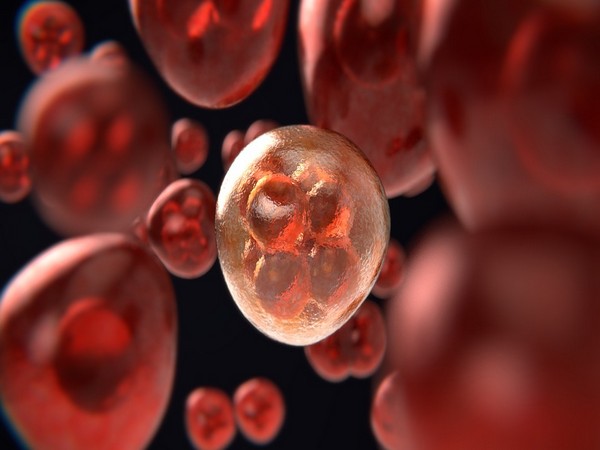

According to a preclinical study conducted by researchers at Weill Cornell Medicine, genetically engineered immune cells successfully targeted the specific cancer cells that may be responsible for relapse of acute myeloid leukaemia (AML), a type of blood cancer, and proved effective in animal models of the disease.
The findings of the research were published in the journal ‘Nature Communications’.
The new cell therapy, now being tested in phase 1 clinical trials, may ultimately help patients with AML to remain cancer-free.
The researchers used an approach in which immune cells known as T cells are directed to produce proteins called chimeric antigen receptors, or CARs, that enable the T cells to recognize specific markers on cancer cells. In this case, the CAR is a receptor that binds to the CD123 molecule on leukaemia stem cells, enabling the T cells to seek out and attack the cancer cells.
“Leukemia stem cells are a subset of leukemic cells that are resistant to standard chemotherapy drugs and can cause disease relapse,” said co-senior author Dr Monica L. Guzman, associate professor of pharmacology in medicine in the Division of Hematology & Medical Oncology and a member of the Sandra and Edward Meyer Cancer Center at Weill Cornell Medicine. “CD123 is a marker found on leukaemia stem cells, and my laboratory has been working on designing mouse models to test new CD123-targeted anti-leukaemia therapies.”
Although there are effective therapies to treat AML, the disease eventually recurs in most patients even after achieving complete remission. By engineering T cells to express a CAR that targets CD123, Dr Guzman and her colleagues hope to rid patients of any remaining leukaemia stem cells. CAR T cells are an attractive anti-cancer therapy because they can be grown in large numbers in the laboratory.
“The CAR T cells–called UCART123 cells–used in this study have several very important features,” said Dr Guzman. “They target a leukaemia stem cell marker, they are derived from healthy donors and manufactured to be ‘off the shelf’ and ready-to-go for patients when needed, they are specially designed to try to minimize toxicity, and they can be eliminated using a drug called rituximab in case of excessive proliferation.”
When the team tested the UCART123 cells in a mouse model of AML, they found that the therapy effectively eliminated leukaemia cells and prolonged survival. The scientists also designed an ultra-sensitive monitoring strategy to detect any residual cancer cells and to assess the persistence of UCART123 cells. Finally, they demonstrated that UCART123 cells have specificity against leukaemia cells, with minimal toxicity to normal blood cells in mice.
The preclinical results have led to a phase 1 clinical trial testing UCART123 in patients with relapsed/refractory AML at several sites across the United States, including New York-Presbyterian/Weill Cornell Medical Center. “These laboratory data strongly support the ongoing clinical trial,” said trial principal investigator and senior co-author Dr Gail Roboz, director of the Clinical and Translational Leukemia Program at Weill Cornell Medicine and an oncologist at NewYork-Presbyterian/Weill Cornell Medical Center.
“The results of the preclinical study suggest that UCART123 cells are highly selective and specific in targeting AML, and we anticipate that the techniques developed in Dr Guzman’s lab will help us monitor patients undergoing treatment with UCART123 and optimize their likelihood of success,” said Dr Roboz, who is also a professor of medicine in the Division of Hematology & Medical Oncology and a member of the Meyer Cancer Center at Weill Cornell Medicine.